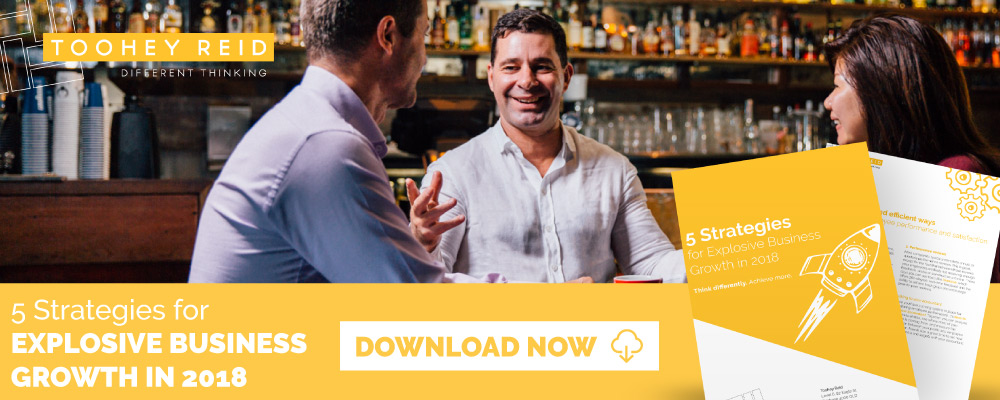Want to be a successful entrepreneur? There are many movers and shakers out there who you can draw inspiration from to build success in your business. Here are just a few of the biggest innovators of today and some key lessons from them that we love:
1. Google and Apple
Both of these hugely successful companies embrace an eclectic approach to problem-solving. They also defy categorisation and have consistently reinvented themselves over the decades. They are always introducing new products, improving existing features and offering add-on services that are attractive to their customers.
One of Steve Jobs’ most famous quotes is: “Sometimes when you innovate, you make mistakes. It is best to admit them quickly, and get on with improving your other innovations.”
The fact that Google and Apple still feature on the World’s Most Innovative Companies List after being founded 20 and 40 years ago is a testament to their staying power and ability to iterate.
Lesson: It’s important to have a clearly defined direction for your business, yet also be open to change and adapt as much as necessary. Having advisors on your team who can help you seamlessly transition your business from one phase to another is essential.
2. Snapchat
Like it or not, the force driving our technology obsession is youth. The rate of new startups looking to cater to young consumers is mind-boggling, however, not unjustified – as the expectation for better, newer products is always there.
Young and eager minds are always looking for the next best thing, including fun new ways to communicate with their friends. The founder of Snapchat, Evan Spiegel, once said “I don’t want to disrupt anything. We never conceive of our products as disruptive – we don’t look at something and say, ‘Let’s disrupt that.’ It’s always about how we can evolve this and make this better.”
Lesson: Always work on improving your products/services to help them evolve into something better. If your business becomes stagnant, you will be left behind. The true art of business lies in leveraging insight with innovation.
3. AirBnB
As well as a platform where people can advertise their homes as hotels, AirBnB has recently expanded into tours and local adventures called ‘Trips’. You can now skip using a travel agent altogether and book customised travel experiences yourself by using an easy-to-use app. The company is also looking at adding flight bookings.
“It doesn’t matter how great your original product or idea is, if you can’t build a great company, then your product will not endure,” says AirBnB CEO, Brian Chesky. “Build your business one person at a time. Just focus on 100 people. If they love you, they will market the product for you and tell everyone else. Go to your users. Do one scalable thing, one person at a time. It’s actually so simple, that’s the secret… that’s all you need to do.”
Lesson: Create a multi-faceted service that challenges what has been the norm for a long time, and meets the new-age demand for faster, easier ways to achieve things. Make a product that’s so good, your users will talk about it for you!
4. Tesla
Innovative electric car manufacturer, Tesla, has risen through the ranks in a surprisingly short amount of time. The company was founded in 2003 and has already sold more than 105,000 cars – all without the use of TV advertising or engaging in old-school marketing efforts like appearing at auto shows. It has created an entirely alternative business model, which poses a threat to the car manufacturing industry at large.
CEO of Tesla, Elon Musk states that “Failure is an option here. If things are not failing, you are not innovating enough.”
Lesson: Don’t follow the crowd. And don’t be afraid to take a few risks, have a few failures, and learn from these. This is how you create truly innovative products that are one of a kind. But if you’re afraid your failures might cost you your business, talk to a risk mitigation specialist, who can help you cover your financial assets so that you can get on with experimenting!
5. Netflix
Netflix is still a young company, but it has managed to beat its competition (i.e. Blockbuster) through disruptive innovation. It provided a wider selection of viewing content at a low price and on demand. Eventually, it took over the market by appealing to the larger company’s core audience.
Netflix CEO, Reed Hastings, asserts that “Truly brilliant marketing happens when you take something most people think of as a weakness and reposition it so people think of it as a strength.”
Lesson: Appeal to a larger competitor’s customers. Find the weaknesses in their business model and offer solutions in your own product, for the same audience.
6. SpaceX
The final frontier of space is wide open when it comes to travel, but the problem is the cost of getting there. SpaceX hopes to change all that by providing low-cost space flight. Part of this cost-cutting focuses on developing a new type of rocket engine that isn’t as expensive to build or run and is sustainable over the long-term.
It’s about creating opportunities for people who can progress our civilisation, but may not have the wealth to finance it. Elon Musk explains this, “What I’m trying to do is to make a significant difference in space flight and help make space flight accessible to almost anyone.”
Lesson: Sometimes reducing the cost of your product or service can open up its availability and make a greater profit. Not only this, but it will provide opportunities for a wider consumer-base.
Toohey Reid is Brisbane’s leading chartered accounting firm. Do you need business advice from an unbiased, third-party? We can help! Give us a call on (07) 3221 1055 or send us an online enquiry today.
General Advice Disclaimer
General advice warning: The advice provided is general advice only as, in preparing it we did not take into account your investment objectives, financial situation or particular needs. Before making an investment decision on the basis of this advice, you should consider how appropriate the advice is to your particular investment needs, and objectives. You should also consider the relevant Product Disclosure Statement before making any decision relating to a financial product.
Did you like this article? Email it to a friend

